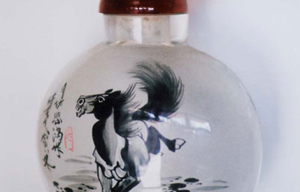Center
Match-fixers buying clubs, warns FIFA
Updated: 2011-09-21 07:52
(China Daily)
Measures on the way to combat increasing influence of gangs
ZURICH - Criminal gangs are making long-term investments in match-fixing, purchasing clubs and organizing referee training camps as part of their infiltration of soccer, FIFA's security chief told Reuters in an interview.
Chris Eaton said that, as part of its response, FIFA wanted to provide witness protection for players who came forward when they were approached by match-fixers and would consider rehabilitation for those corrupted at a young age.
It would also set up a hotline open to anyone to provide information on suspicious behavior.
"We want to manipulate the manipulators and intimidate the intimidators; they have to realize that we are serious and FIFA is going to protect its people, its sport against these people who have no conscience at all," he said.
"Infiltration is a strong word but my assessment is that organized criminality has infiltrated at several levels of football for the precise purpose of making money from the enormous amount of gambling income which is now being generated."
Buying clubs was a way for organized groups to control the results of matches, warned Eaton, who worked at Interpol for more than 12 years before joining FIFA.
"We're seeing a trend for the purchase of low-level clubs and the movement of players and the trafficking of players," he said, adding that this happened mainly in "less wealthy" countries.
"There is a significant trend in the trafficking of players, moving them into other leagues with a mentor, normally a player who comes from the same country or region, has a great deal of respect, is more than likely corrupted, who is able to influence these players.
"We're seeing referees' development schools and player development schools, some of which are clearly a front for criminals. They are investing long-term in the compromise of these players.
"They (development camps) are often endorsed by a federation and perhaps the federation doesn't realize who is behind the operation."
It begins with a gift

Match-fixing, usually by illegal gambling rings, has become a major problem for soccer in the last few years.
In one recent case in Finland, Wilson Raj Perumal, a Singaporean national, was jailed for two years while nine players - seven Zambians and two Georgians - were given suspended sentences for trying to fix matches.
Perumal paid players up to 20,000 euros ($28,290) per match and received up to 50,000 euros, in addition to some of the betting profits, each time the results of the Rovaniemi team were fixed.
Eaton said the approaches to players or referees would often begin with a gift.
"They'll go to a player and they'll say: 'You played a great game today, I made some money off you, here's 1,000 euros'.
"The next time he plays, the same person will give him another 1,000 euros - for some of these players, we're talking about third or fourth division, it's more than they would make for the game.
"The third time they say: 'I can give you 10,000 euros if you don't score a goal today, or if you let a goal in today'.
"They wait outside the changing-rooms, they know the players, they know where the players live, drink, they'll have a mentor.
"This is what Perumal did to several African players in Finland: he gave them some money as gifts, then asked them to do something for him when they were ingratiated and compromised by him."
Eaton added that not all attempts to fix games were successful.
"These are athletes, they get involved in the game and they forget about their agreement. They become enthused in the match and it doesn't go the way it was supposed to go and they're punished."
"We have examples of players being severely bashed, (and) referees."
Earlier this year, FIFA set up a task force with Interpol, promising to donate 20 million euros to the fight against match-fixing over the next 10 years.
One of its jobs would be to provide protection and anonymity for whistleblowers.
"We need to provide them with protectio n because that is an important commodity against organized crime," Eaton said. "This is not so easy to deliver, but we will deliver it, we are in the process of discussing with particular national governments and police in vulnerable countries how we can support that."
A hotline and rewards scheme would be set up for people to come forward with information and an amnesty considered in some cases, along with guarantees of anonymity.
"We will have an amnesty for players and officials who have been corrupted fairly young, unfairly corrupted, corrupted by a strong player or official or referee or someone who's very influential in football, in a way they didn't have any real choice," Eaton said.
Reuters
E-paper

The snuff of dreams
Chinese collectors have discovered the value of beautiful bottles
Perils in relying on building boom
Fast forward to digital age
Bonds that tie China. UK
Specials

Let them eat cake
Cambridge University graduate develops thriving business selling cupcakes

A case is laid to rest
In 1937, a young woman'S body was found in beijing. paul french went searching for her killer

Banking on change
Leading economist says china must transform its growth model soon
